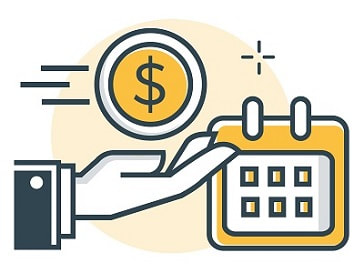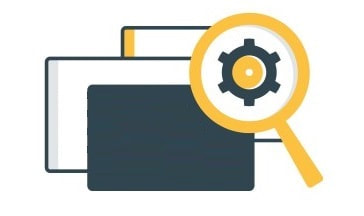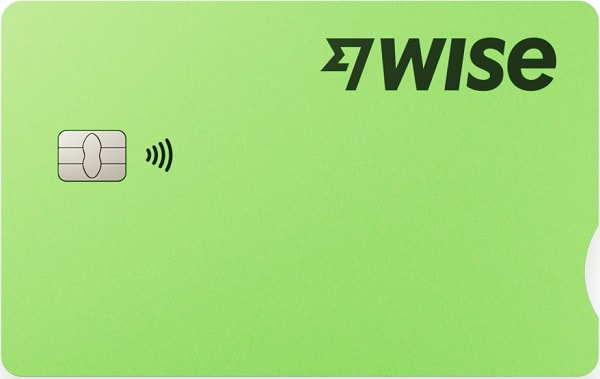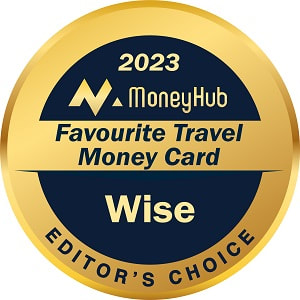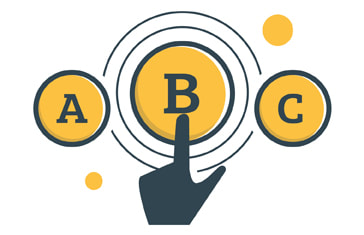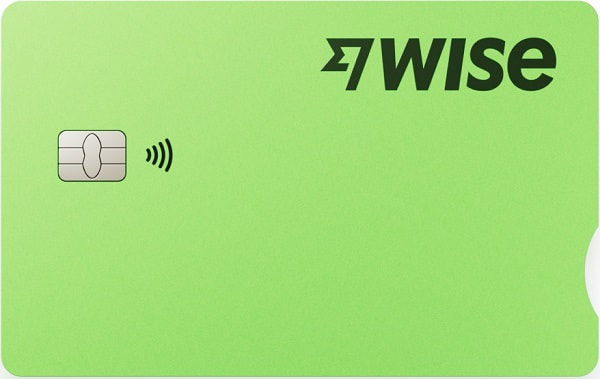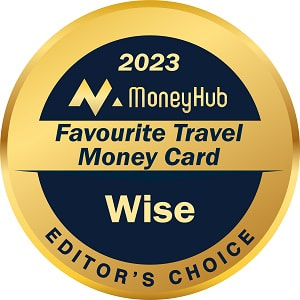Bali Travel Money - Best Options for Kiwis 2024
Our guide outlines everything you need to know about spending money in Bali, specifically cash vs debit and credit cards vs travel money cards.
Updated 3 January 2024
Summary:
Our guide explains everything you need to know to make travelling in Bali a cost-effective experience. We cover:
Advertising disclosure: We may receive a payment if you sign up for a card via MoneyHub - please read our advertising policy for more details.
Related guide: The Best Travel Money Cards
- The official currency of Bali is the Indonesian Rupiah, often represented as IDR or with the "Rp" symbol locally.
- Bali is increasingly popular with New Zealanders, but too many people are ripped-off with bad FX rates on cash delivered in New Zealand and exchange in Bali at FX kiosks, hotels and resorts. Changing money into IDR is big business - don't get stung by poor NZD:IDR rates and see a portion of your NZD vanish in seconds.
- For example, the difference between the Travelex NZD:IDR cash rate and Wise NZD:IDR debit card rate was around 12% when we conducted our latest research in October 2023, confirming how poor value getting cash in New Zealand from Travelex before flying out can be. Popular FX kiosks like Central Kuta Money Exchange offer rates somewhere in the middle for anyone converting NZD to IDR, which still leaves you worse off compared to using your card and withdrawing from an ATM when you get to Bali.
- Most New Zealanders will pre-book and/or prepay hotels, Airbnb and experiences using cards, but on-the-ground costs will often involve using cash. For this reason, having the most economical and convenient payment method for Bali makes every dollar go further whether you use card or withdraw cash from an ATM to keep you going.
- Be are that scams do occur with ATMs - this guide provides a helpful summary of what to be aware of, and this June 2023 article explains a typical scam in action.
- Generally, any card-accepting business will take Mastercard and Visa, but it's rare to find AMEX accepted outside major hotels and resorts.
Our guide explains everything you need to know to make travelling in Bali a cost-effective experience. We cover:
- Option 1 - Using Cash in Bali
- Option 2 - Using NZ-Issued Debit and Credit Cards in Bali
- Option 3 - Using Travel Money Cards (Including the Wise Debit Card) in Bali
- Must-Know Facts for Using Money in Bali
- NZD to IDR Conversion and Spending IDR - Frequently Asked Questions
- Our Conclusion
Advertising disclosure: We may receive a payment if you sign up for a card via MoneyHub - please read our advertising policy for more details.
Related guide: The Best Travel Money Cards
Option 1 - Using Cash in Bali
If you want physical IDR notes before leaving New Zealand for Bali, you have a couple of options:
Getting IDR Cash from an NZ Bank: No bank offers Indonesian Rupiah; it has lesser demand than major currencies and fluctuates a lot more, meaning holding it is a risk to the bank.
Getting IDR Cash from a Bureau de Change/Forex Booth: The primary operators in New Zealand are travel money booths like Travelex and No1 Currency. However, based on our video research summary below, the FX rates at these booths can be below mid-market rates, meaning you'll get less IDR for your NZD than other methods. In some cases, the difference is as high as 12%, meaning you're losing a significant portion of every NZ dollar you spend in Bali to bad FX rates.
Getting IDR Cash When You Arrive in Bali: Upon arrival at Ngurah Rai International Airport in Denpasar, Bali, several ATMs and currency exchange counters are in the baggage collection and arrivals concourse areas. While ATMs might charge a fee for withdrawal (either from the local bank or your NZ bank), currency exchange counters might offer less favourable rates, especially at the airport.
Our View: FX rates at Forex booths in New Zealand are, at best, poor and, at worst, a rip-off. When you're in Kuta or in and around Bali, the NZD:IDR rates offered by forex booths improve but are still much lower than that you'd get from a bank card or travel money card. As outlined below, using Wise for ATM withdrawals in Bali will deliver the best value for every NZD you spend in Bali. The limit for any ATM withdrawal is around IDR 3,000,000 (approximately NZ$320). If you are changing NZD into IDR at a forex kiosk, we suggest reading this dedicated guide that explains everything you need to know.
Bonus: The Wise Debit Card offers withdrawals of up to NZ$350 per month without charging a transaction fee, meaning you can withdraw up to around IDR 3,000,000 in cash without paying FX transaction fees (after NZ$350, it's a flat 1.75% fee). If you make a one-off withdrawal of say, the equivalent of NZ$1,000 while in Bali or anywhere outside of New Zealand, Wise will charge you fees on the $650, whereas the first $350 per month is free.
Video Comparison: In the video below, MoneyHub Founder Christopher Walsh compares the NZD:IDR rates offered by forex kiosks in New Zealand (Travelex and No1 Currency), Bali (Central Kuta Money Exchange), and how they compare to Wise and bank cards that use Visa and Mastercard:
Getting IDR Cash from an NZ Bank: No bank offers Indonesian Rupiah; it has lesser demand than major currencies and fluctuates a lot more, meaning holding it is a risk to the bank.
Getting IDR Cash from a Bureau de Change/Forex Booth: The primary operators in New Zealand are travel money booths like Travelex and No1 Currency. However, based on our video research summary below, the FX rates at these booths can be below mid-market rates, meaning you'll get less IDR for your NZD than other methods. In some cases, the difference is as high as 12%, meaning you're losing a significant portion of every NZ dollar you spend in Bali to bad FX rates.
Getting IDR Cash When You Arrive in Bali: Upon arrival at Ngurah Rai International Airport in Denpasar, Bali, several ATMs and currency exchange counters are in the baggage collection and arrivals concourse areas. While ATMs might charge a fee for withdrawal (either from the local bank or your NZ bank), currency exchange counters might offer less favourable rates, especially at the airport.
Our View: FX rates at Forex booths in New Zealand are, at best, poor and, at worst, a rip-off. When you're in Kuta or in and around Bali, the NZD:IDR rates offered by forex booths improve but are still much lower than that you'd get from a bank card or travel money card. As outlined below, using Wise for ATM withdrawals in Bali will deliver the best value for every NZD you spend in Bali. The limit for any ATM withdrawal is around IDR 3,000,000 (approximately NZ$320). If you are changing NZD into IDR at a forex kiosk, we suggest reading this dedicated guide that explains everything you need to know.
Bonus: The Wise Debit Card offers withdrawals of up to NZ$350 per month without charging a transaction fee, meaning you can withdraw up to around IDR 3,000,000 in cash without paying FX transaction fees (after NZ$350, it's a flat 1.75% fee). If you make a one-off withdrawal of say, the equivalent of NZ$1,000 while in Bali or anywhere outside of New Zealand, Wise will charge you fees on the $650, whereas the first $350 per month is free.
Video Comparison: In the video below, MoneyHub Founder Christopher Walsh compares the NZD:IDR rates offered by forex kiosks in New Zealand (Travelex and No1 Currency), Bali (Central Kuta Money Exchange), and how they compare to Wise and bank cards that use Visa and Mastercard:
Using IDR Cash - Pros and Cons
Pros:
Cons:
- Total Acceptance: In Bali and throughout Indonesia, cash remains the primary mode of transaction. Many small businesses, local markets, and remote areas rely solely on cash, making the Indonesian Rupiah (IDR) indispensable for travellers.
- Immediate Transactions: Paying with cash ensures swift transactions without worrying about card compatibility, machine issues, or transaction declines.
Cons:
- Safety Concerns: Having a lot of cash can pose risks, especially in bustling areas like Kuta or Seminyak. While keeping IDR in a secure spot, such as a hotel safe, is an option, it's essential to be cautious and divide your money when exploring.
- Airport Exchange Pitfalls: Although exchanging NZD to IDR upon arrival at Bali's Ngurah Rai International Airport might seem convenient, you could face unfavourable rates at airport Forex counters or ATMs. Rates at these locations often include markups or concealed commission fees, meaning you get less IDR for your NZD.
If I have spare IDR on the last day I'm in Bali, what should I do with them?
- Spare notes and coins have a habit of gathering dust back in New Zealand, and it may be some time before you visit Bali or Indonesia again. The best way to avoid having leftover currency is to spend the notes and coins on your last day; many people make a part payment alongside their card to settle a final bill, for example a lunch or dinner, before they fly out. Or you can put the cash towards the hotel bill if you're settling the bill at the end of your stay.
- You can convert them back to NZD, but the IDR can be a one-way currency for many forex booths. For example, Central Kuta Money Exchange only offers 'buy' NZD rates, meaning it won't sell IDR and convert it back into NZD, but we are aware you can pre-order NZD and change your IDR at the rate they offer. If this doesn't work, you are left with the option of the Click and Sell option from No1 Currency. You'll get around 10% less than the market IDR:NZD. However, having NZD you can spend is more useful than IDR notes that sit there, so it's a cost worth incurring.
- Lastly, if you know someone visiting Bali or Indonesia in the future, giving them IDR notes and coins makes for a nice present they'll appreciate.
Option 2 - Using NZ-Issued Debit and Credit Cards in Bali
Many New Zealanders will use a debit and/or credit card (alongside cash) when in Bali, given the wide use of payment terminals hotels, resorts and restaurants.
What Do New Zealand Banks Charge for Card Use? Most banks impose foreign transaction fees ranging from 0% to 3.5% of the total transaction amount. This fee is atop the exchange rate margin the bank adds to the daily exchange rate. Some banks might also charge a flat fee for overseas ATM withdrawals; to minimise such fees, we suggest using local Indonesian bank rather than international banks.-This useful guide has more details.
For example, if you're using an ANZ Visa Debit or credit card, you'd typically incur a fee of 1.30% of the transaction amount when you make a purchase overseas per the ANZ's website while Kiwbank's debit cards will charge you 2.50%. The Co-operative Bank goes higher with a 2.60% fee. If you withdraw from an ATM, you may also pay an additional overseas ATM fee; you may need to use specific ATMs (as outlined here by Westpac), or your bank may charge a fixed rate per ATM withdrawal.
More details: Detailed bank charges are in our Debit and Credit Cards FX Fee comparison.
What Do New Zealand Banks Charge for Card Use? Most banks impose foreign transaction fees ranging from 0% to 3.5% of the total transaction amount. This fee is atop the exchange rate margin the bank adds to the daily exchange rate. Some banks might also charge a flat fee for overseas ATM withdrawals; to minimise such fees, we suggest using local Indonesian bank rather than international banks.-This useful guide has more details.
For example, if you're using an ANZ Visa Debit or credit card, you'd typically incur a fee of 1.30% of the transaction amount when you make a purchase overseas per the ANZ's website while Kiwbank's debit cards will charge you 2.50%. The Co-operative Bank goes higher with a 2.60% fee. If you withdraw from an ATM, you may also pay an additional overseas ATM fee; you may need to use specific ATMs (as outlined here by Westpac), or your bank may charge a fixed rate per ATM withdrawal.
More details: Detailed bank charges are in our Debit and Credit Cards FX Fee comparison.
Using NZ Bank Cards in Bali - Pros and Cons
Pros:
Cons:
Our View:
Related guide: The Best Travel Money Cards
- Convenience: Your NZ debit, credit, or travel money card is handy and accepted at most high-end establishments, hotels, and tourist hubs in Bali. From boutique shops in Seminyak to luxury resorts in Ubud, the card can be a reliable companion.
- Expense Tracking: Bali's diverse offerings might tempt you to splurge. Fortunately, with mobile banking apps, you can monitor your expenses, set daily limits, and receive transaction notifications. It's a great way to manage your budget amid Bali's attractions.
Cons:
- Unexpected Charges: While swiping your card at Bali's resorts and restaurants is a breeze, the fees can pile up. Different NZ banks have varied charges for overseas use. The blend of foreign transaction fees and the bank's exchange rate can inflate expenses. Our overview of overseas card fees can provide more insights.
- Dynamic Currency Conversion (DCC) Traps: In some Bali establishments, you might be prompted to pay in NZD instead of IDR. This DCC service often costs more due to less attractive exchange rates and possible hidden charges. Always pay in IDR to ensure you get your bank's most favourable FX rate.
- Potential Card Mishaps: Bali, especially crowded areas like Kuta, can sometimes pose risks like card skimming. Moreover, not all ATMs accept foreign cards. It's essential to have a backup card and cash, considering many local warungs (eateries) or transport services might be cash-only.
Our View:
- Using an NZ bank card in Bali presents undeniable ease, but being aware of the costs is vital. A week-long Bali retreat can quickly add up, and unnecessary bank fees can sting.
- While Bali is known for being affordable, extra charges can diminish that affordability. For every IDR million you spend, you don't want a significant portion going to the bank.
Related guide: The Best Travel Money Cards
Option 3 - Using Travel Money Cards (Including the Wise Debit Card) in Bali
Know This First: Our review and comparison of travel money cards confirms Wise as the best option, with no card a close second. This includes options from Travelex, OneSmart and Cash Passport. For this reason, we've focused on Wise for this section to explain what you need to know.
Getting Familiar with the Wise Debit Card Usage in Bali
What Does Wise Charge for Card Use? Wise prides itself on transparent fees and real exchange rates. They charge a small conversion fee (around 0.56%) when you convert your money to IDR, which is typically much lower than traditional banks, with the additional benefit of leading FX rates.
ATM withdrawals are free up to a certain limit (NZ$350 per month), after which a 1.75% fee is applied. However, if you make a one-off withdrawal of say, the equivalent of NZ$1,000 while outside of New Zealand, Wise will charge you fees on the $650, whereas the first $350 per month is free.
Getting Familiar with the Wise Debit Card Usage in Bali
- Wise offers a travel money card that lets you have multiple currency wallets and comes with a physical and digital debit card. This includes the IDR, meaning you can buy IDR in advance and store it in an IDR digital wallet.
- If you prefer to load NZD rather than lock in an IDR forex rate, you can do that too. This means when you spend in IDR, transactions are converted into NZD and deducted from your balance at the forex rate at the time of purchase.
What Does Wise Charge for Card Use? Wise prides itself on transparent fees and real exchange rates. They charge a small conversion fee (around 0.56%) when you convert your money to IDR, which is typically much lower than traditional banks, with the additional benefit of leading FX rates.
ATM withdrawals are free up to a certain limit (NZ$350 per month), after which a 1.75% fee is applied. However, if you make a one-off withdrawal of say, the equivalent of NZ$1,000 while outside of New Zealand, Wise will charge you fees on the $650, whereas the first $350 per month is free.
Using the Wise Debit Card - Pros and Cons
Pros:
Cons:
Our View: The Wise debit card, with its transparent fee structure and competitive exchange rates, is a value-delivering choice for many travellers in Bali. Combining the card with some cash will ensure you're prepared for all situations, and with zero FX fees on withdrawals up to NZ$350 per month (around IDR 3,000,000), the card delivers on value.
Related guide: The Best Travel Money Cards
- Acceptance: You can use a Wise card anywhere Visa or Mastercard are accepted (which is almost everywhere in Bali).
- Competitive Rates: Wise uses the real exchange rate (the one you see on Google) and thus avoids the typical markup that banks add.
- Multi-currency: The Wise borderless account lets you hold and manage money in multiple currencies (including IDR), which can be extremely useful when travelling to more than just Bali and Indonesia.
- Transparent Fees: You always know what you're being charged, with no hidden costs.
- Instant Notifications: The Wise app notifies you immediately after every transaction, helping you keep track of your spending.
Cons:
- ATM Withdrawal Limit: While they offer free ATM withdrawals, it's only up to a certain limit. Beyond that, there's a 1.75% fee.
- Bali has a low ATM withdrawal limit: It's up to 3,000,000 IDR, which is around NZ$320. However, the FX rates you get will be market-leading and any ATM charge imposed by the ATM operator will still make using an ATM cheaper than converting NZD to IDR at a forex kiosk (assuming you withdraw at least NZ$100 or so at a time).
- Not a Credit Card: The Wise card is a debit card, meaning you can't spend money you don't have - we argue this is also a positive feature to avoid holiday debt.
Our View: The Wise debit card, with its transparent fee structure and competitive exchange rates, is a value-delivering choice for many travellers in Bali. Combining the card with some cash will ensure you're prepared for all situations, and with zero FX fees on withdrawals up to NZ$350 per month (around IDR 3,000,000), the card delivers on value.
Related guide: The Best Travel Money Cards
Our Top-Rated Travel Money Card - The Wise Debit Card
|
Must-Know Tips for Using Money in Bali
Beware of the Bali Scams
From overpriced taxi rides to street scams, trust your gut feeling and be wary. Especially avoid money changers advertising too-good-to-be-true rates; these often have hidden fees or might short-change you. This Bali scam summary has more details.
Mobile Payments Are Still Gaining Traction
Mobile payment systems like Apple Pay and Google Pay aren't common in Bali; Indonesia favours its local versions for local payments.
Keep Track of Your Expenditures
It's easy to lose track of spending given that the IDR is denominated in large numbers which makes keeping track confusing. To get control and building an understanding of managing travel money, we suggest an app like Wise, which gives you instant payment notifications (when you're on WIFI or data), which helps you stay aware of your spending.
Video Explainer: In the video below, MoneyHub Founder Christopher Walsh explains Bali and travel money, and overviews this guide in detail to help explain the options:
Video Explainer: In the video below, MoneyHub Founder Christopher Walsh explains Bali and travel money, and overviews this guide in detail to help explain the options:
NZD to IDR Conversion and Spending IDR - Frequently Asked Questions
How does the NZD usually fare against the IDR?
The NZD:IDR exchange rate experiences shifts due to economic dynamics. Historically, 1 NZD has ranged between 8,500 and 10,000 IDR.
Can I use my NZ debit card or credit card everywhere in Bali?
Major tourist areas and upscale establishments in Bali accept cards. However, many local businesses, transport services, and markets predominantly operate on cash.
Is Bali expensive for NZ tourists?
Bali offers a diverse range of experiences catering to both budget travellers and luxury seekers. Planning and being aware of local prices can lead to significant savings; it's never too early to book. Air New Zealand operates a monopoly on direct flights from Auckland, which can make it an expensive holiday given the costs to get there.
What's the best way to get the most IDR for my NZD?
Platforms like Wise beat traditional banks or airport kiosks regarding exchange rates, fees, features (such as storing IDR in a digital wallet) and transparent tracking. We consider the Wise Debit Card a better product than standard bank-issued credit cards and debit cards, which usually charge higher fees and lack a travel focus.
Our Conclusion
For New Zealanders heading to Bali, navigating the nuances of foreign exchange is crucial to fully enjoying the island paradise without getting ripped off. The Indonesian Rupiah can seem daunting with its large denominations, but knowing the right ways to convert and spend can save you heaps.
When it comes to accessing IDR:
Our View: To make every dollar go further, we suggest considering the Wise Debit Card as your primary spending tool, ensuring you get great rates and minimal fees. You can then use your NZ-issued debit card and/or credit card as a backup. However, if you do want to withdraw cash, Wise allows up to around IDR 3,000,000 a month free of fees.
When it comes to accessing IDR:
- Cash: Bali, with its numerous local markets, street foods, and traditional offerings, often relies heavily on cash. Getting IDR at Forex Kiosks in Auckland and Bali airport will deliver the worst value for your NZD. Instead, a leading travel money card like the Wise Debit Card offers market-leading rates, the ability to buy IDR in advance and withdraw up to NZ$350 monthly without those pesky FX fees.
- NZ Bank Cards: Debit and credit cards are convenient, especially at upscale Bali spots, resorts, or popular tourist zones. Yet, that convenience can come at a price. Foreign transaction fees and exchange rate margins can chip away at your travel budget.
- Wise Debit Card: The Wise Debit Card presents itself as a clear, multi-currency solution with competitive exchange rates and minimal fees. Travellers can withdraw up to NZ$350 per month without incurring FX conversion fees.
Our View: To make every dollar go further, we suggest considering the Wise Debit Card as your primary spending tool, ensuring you get great rates and minimal fees. You can then use your NZ-issued debit card and/or credit card as a backup. However, if you do want to withdraw cash, Wise allows up to around IDR 3,000,000 a month free of fees.
Our Top-Rated Travel Money Card - The Wise Debit Card
|
Related Guides:
Country-Specific Travel Money Guides:
- Compare Travel Money Cards
- Travelex Money Card vs Wise Debit Card
- Wise Debit Card vs Cash Passport Travel Money Card
- Wise Debit Card vs Air New Zealand OneSmart Travel Money Card
- Wise Debit Card Review
- Foreign Currency Debit and Credit Card Fees
- Foreign Currency Exchange
- Compare Travel Insurance
Country-Specific Travel Money Guides:


